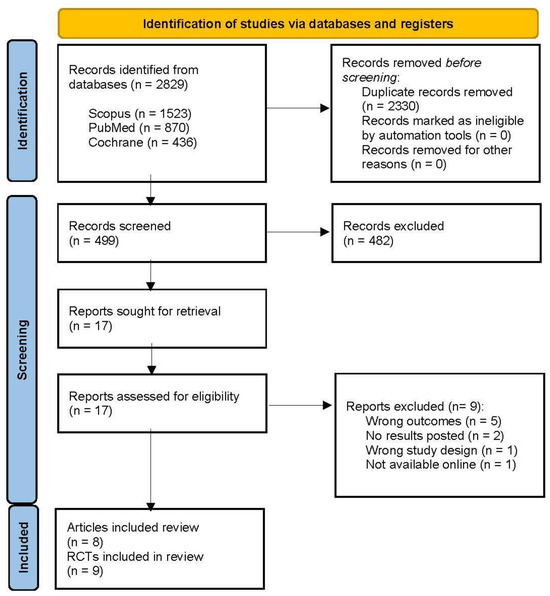Have you ever wondered if something as simple as chewing gum could actually help you lose weight? It sounds too good to be true, right?
But what if chewing gum could curb your cravings, reduce snacking, and even boost your metabolism? If you’re looking for easy ways to support your weight loss goals, this might be worth your attention. Keep reading to discover how chewing gum could fit into your routine and whether it really makes a difference for shedding those extra pounds.

Chewing Gum And Appetite Control
Chewing gum is often used to help manage hunger. Some people think it can help with weight loss.
Chewing gum may reduce the desire to eat between meals. It keeps the mouth busy and can lower appetite.
Effects On Hunger Signals
Chewing gum can send signals to the brain that reduce hunger feelings. This happens because chewing activates nerves linked to appetite control.
The act of chewing may trick the brain into thinking food is coming. This can lower the production of hunger hormones for a short time.
Reducing Snack Cravings
Chewing gum can help stop cravings for unhealthy snacks. It provides a low-calorie activity that distracts from eating.
People who chew gum often eat fewer snacks and may feel more in control of their food choices.
- Chewing keeps the mouth busy
- Reduces the urge to eat out of boredom
- Helps manage sweet or salty cravings
Calorie Burn From Chewing
Chewing gum is a popular habit worldwide. Some people wonder if it can help with weight loss.
One reason people chew gum is to burn calories. Let’s look at how chewing affects calorie burn.
Energy Expenditure Explained
Energy expenditure means how much energy your body uses. It includes all activities like moving and digesting food.
Chewing gum uses energy because your jaw muscles work. This effort burns some calories, but the amount is small.
How Many Calories Can You Burn?
Chewing gum burns about 11 calories per hour. This is less than walking or other exercises.
- Chewing for 30 minutes burns about 5.5 calories
- Chewing for 1 hour burns about 11 calories
- Calories burned depend on chewing speed and gum type
Chewing Gum And Stress Eating
Chewing gum is often used as a tool to reduce stress and avoid eating too much. People sometimes eat when they feel stressed, even if they are not hungry. Chewing gum can keep the mouth busy and lower the urge to eat snacks.
This simple habit might help control emotional eating. It offers a distraction and can reduce cravings linked to stress.
Managing Emotional Eating
Emotional eating happens when people eat to feel better, not to satisfy hunger. Chewing gum can help by giving a small, low-calorie way to keep the mouth busy.
It can stop the habit of reaching for unhealthy snacks during stress. This small action may reduce the number of extra calories eaten.
Impact On Cortisol Levels
Cortisol is a hormone released when the body feels stressed. High cortisol can lead to more hunger and fat storage. Chewing gum can lower cortisol levels by reducing stress.
Lower cortisol means less stress eating and better control over weight. Chewing gum offers a simple way to help manage stress and its effects on the body.
Choosing The Right Gum
Chewing gum can be a small help for weight loss. Picking the right type of gum matters a lot. Some gums can support your goals better than others.
Knowing the difference between sugar-free and sugary gums is important. Also, some flavors may help reduce hunger more than others.
Sugar-free Vs. Sugary Options
Sugar-free gum has fewer calories and does not raise blood sugar. It is a better choice for weight loss efforts. Sugary gum has added sugar and more calories. It can increase your calorie intake without you noticing.
Chewing sugar-free gum can keep your mouth busy and reduce cravings. Sugary gum might lead to more hunger and snacking later. Choose sugar-free gum to avoid extra calories and support your diet.
Flavors That May Suppress Appetite
Some gum flavors can help lower your appetite. Mint and cinnamon flavors are known to reduce hunger feelings. These flavors can make food taste less appealing, so you eat less.
Fruity flavors may not have the same effect on appetite. If you want to control hunger, try mint or cinnamon gum. These flavors can help you avoid extra snacking throughout the day.
- Mint flavor can reduce cravings
- Cinnamon flavor may lower hunger
- Fruity flavors are less effective for appetite control
Potential Downsides To Consider
Chewing gum might seem helpful for weight loss. It can reduce hunger and keep your mouth busy.
Still, chewing gum has some drawbacks. It is important to know these before using gum often.
Jaw Fatigue And Tmj Issues
Chewing gum for a long time can tire your jaw muscles. This may cause pain and discomfort.
Some people may develop Temporomandibular Joint (TMJ) problems. This joint controls jaw movement.
- Jaw stiffness
- Clicking or popping sounds
- Difficulty opening mouth wide
- Headaches from jaw pain
Digestive Concerns
Chewing gum can make you swallow extra air. This may cause bloating and gas in your stomach.
Some sugar-free gums have artificial sweeteners. These can lead to diarrhea or upset stomach in some people.

Scientific Studies And Evidence
Chewing gum is often discussed as a tool for weight loss. People want to know if it can help reduce hunger or burn calories. Scientists have studied this idea in different ways.
Research looks at how chewing gum affects appetite, calorie burning, and eating habits. The evidence is mixed, and the effects may be small.
Key Research Findings
Some studies show that chewing gum can lower hunger and reduce snack cravings. It may help people eat less during the day. Chewing gum also burns a few extra calories because of the jaw movement.
Other research suggests that gum can improve feelings of fullness for a short time. This may help control portion sizes and reduce overall calorie intake.
- Chewing gum reduces hunger in some people
- It can burn about 10 calories per hour
- Helps control cravings for snacks and sweets
- May increase fullness temporarily
Limitations Of Current Studies
Many studies have small sample sizes or short durations. This limits how well the results apply to everyone. Some research relies on self-reported hunger, which may be biased.
Effects of chewing gum on weight loss are usually small. Gum alone cannot replace healthy diet and exercise. More long-term studies are needed to understand its true impact.
- Small study groups limit reliability
- Short study times miss long-term effects
- Self-reported data can be inaccurate
- Effects on weight loss are minor
- Not a substitute for healthy habits
Incorporating Gum Into Your Routine
Chewing gum might help reduce cravings and control hunger. Adding gum to your daily habits can support weight loss efforts.
It is simple to include gum in your routine. Small changes like this can make a difference over time.
Timing And Frequency Tips
Chew gum after meals to reduce snacking urges. This helps keep your calorie intake lower.
Limit chewing to about 10-15 minutes each time. Too much gum can cause jaw discomfort.
- Chew gum after breakfast, lunch, and dinner
- Avoid chewing gum too late at night
- Use sugar-free gum to protect your teeth
Combining With Healthy Habits
Use gum alongside a balanced diet and regular exercise. Gum alone will not cause weight loss.
Drinking water and eating fruits also help reduce hunger. Gum can be a small part of a bigger plan.
- Choose low-calorie, nutritious meals
- Stay active with daily walks or workouts
- Drink plenty of water throughout the day
- Use gum to curb cravings between meals

Frequently Asked Questions
Can Chewing Gum Reduce Calorie Intake?
Chewing gum can help reduce calorie intake by curbing cravings and suppressing appetite. It may prevent mindless snacking between meals, supporting weight management.
Does Chewing Gum Boost Metabolism?
Chewing gum slightly increases calorie burn by stimulating digestion and increasing heart rate. However, this effect is minimal and not a significant weight loss method.
How Does Chewing Gum Affect Hunger Hormones?
Chewing gum can reduce hunger hormones, leading to decreased appetite. This helps control food intake and may aid in weight loss when combined with a healthy diet.
Is Sugar-free Gum Better For Weight Loss?
Sugar-free gum is better for weight loss since it contains fewer calories and does not raise blood sugar. It’s a healthier choice for managing weight.
Conclusion
Chewing gum may aid weight loss, but it’s not a magic fix. It can curb cravings and reduce snacking. Yet, it should complement a balanced diet and exercise. Relying solely on gum won’t yield significant results. Consider it a small tool in your weight loss journey.
Listen to your body and make healthy choices. Maintain a balanced approach for lasting results. Remember, every little step counts. Stay active, eat well, and chew wisely. Your health matters most.



